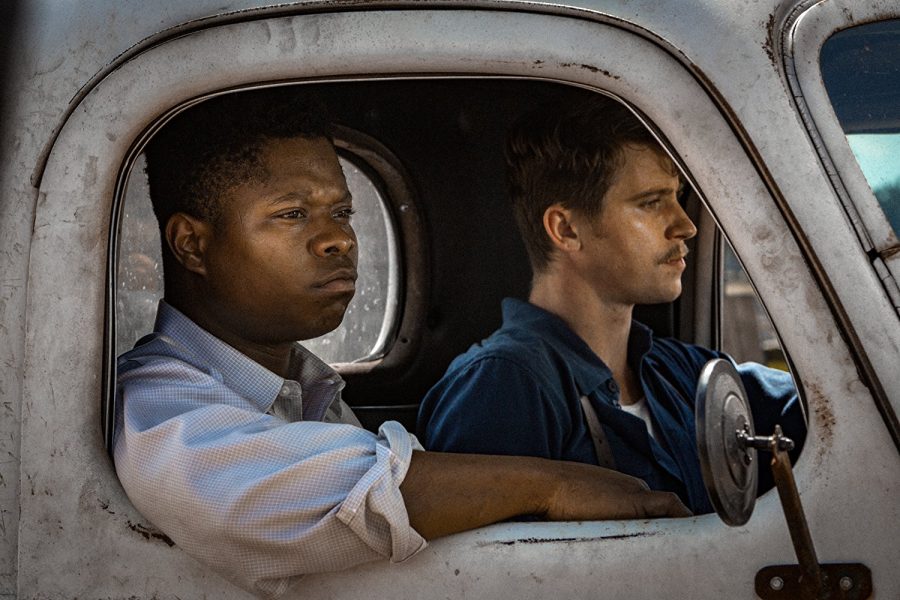Review: 'Mudbound' Is Impactful in Its Harrowing Realism

Kaly Connolly ’19 / Emertainment Monthly Staff Writer
Mudbound is not a comforting story—but it feels like a necessary one, especially in our current political landscape.
With an ensemble cast and six rotating narratives, there’s a lot more to the story than the dismal, muddy farm that plays as the backdrop for the majority of the film. Set during and after WWII, half of the narrators are from a white family, the McAllans, who own the land while the Jacksons are an African-American family of tenant farmers. Though the power dynamics of the film are quite clear—the McAllans have the upper-hand on the farm—the storytelling is much more balanced.
Director Dee Rees, whose former directing credits include Pariah and Bessie, shared with the New York Times how Mudbound pinpoints racial issues still relevant today:
“You can’t separate out threads of history and race as economic construct. Mudbound makes it very plain. Race is about commerce; it’s not an actual thing. It’s a fiction that was created to basically divide resources unequally.”

What connects them, other than the struggling farm, are their family members overseas. Ronsel Jackson (Jason Mitchell), their eldest son, and Jamie McAllan (Garrett Hedlund), Henry’s charming brother, bond upon their return from the war. Ronsel has to face being a veteran in America, in which he is regarded no higher than before he left—whereas overseas, race didn’t seem to nearly as dividing. Jamie, on the other hand, is struggling to deal with the atrocities he saw while at war—and copes with a bottle in hand.

Laura McAllan, a city girl, had no input in being moved to a desolate farmland. However, loyal to her not-so-romantic husband, she settles. She is miserable on the farm, bored, dirty and desperate. Florence Jackson (Mary J. Blige) doesn’t want to care for another woman’s children, but she agrees to care for Laura’s children so that she can bring in extra money for her own family. Both Mulligan and Blige have a strong presence throughout the film and the scenes in which they narrate their own characters’ thoughts are often the most alluring. Their formal relationship is softened by the fact that they both understand the hardship of being a woman, each in their own world.

The depictions of the Jim Crow South are not sugarcoated. There are scenes in the movie that range from uncomfortable to sickening. Part of it may lead to this being a film that never begs for a second viewing—one time around being enough. Its impact feels palpable, leaving a feeling close to the desperation felt by each character on the mud-covered farm.
Overall Grade: A
Watch The Trailer:
[embedyt] https://www.youtube.com/watch?v=xucHiOAa8Rs[/embedyt]